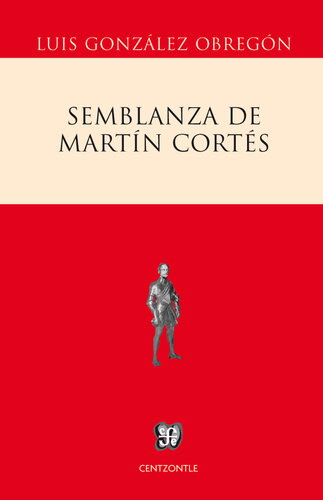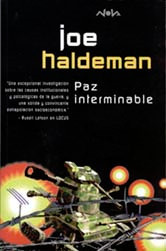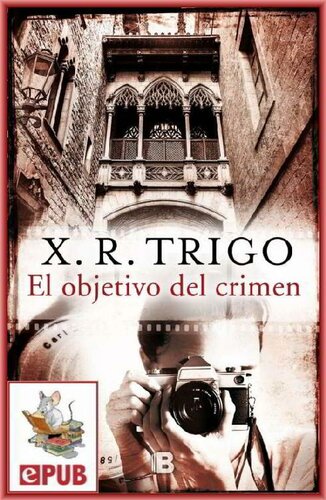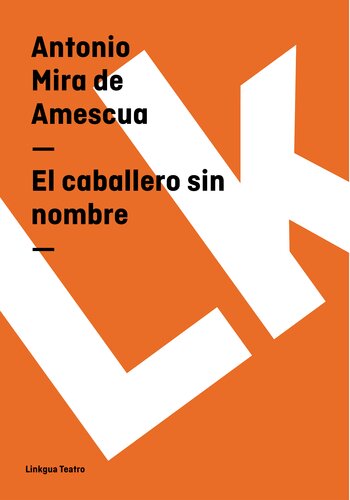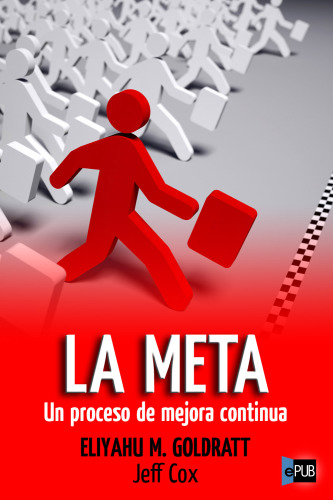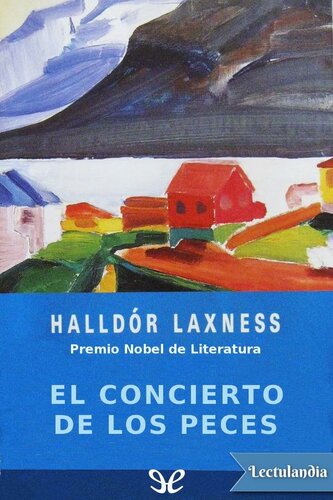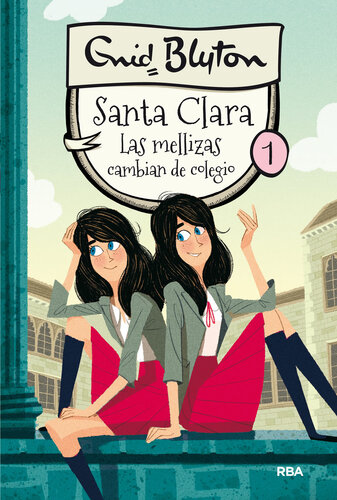oleebook.com
El Maestro Ignorante de Jacques, Ranciere
de Jacques, Ranciere - Género: Ficcion
Sinopsis
Jacques, Ranciere Year: 2009
Libros Recomendados - Relacionados
Reseñas Varias sobre este libro
The Ignorant Schoolmaster is a strange and strangely inspiring little book in the romantic tradition of Rousseau. Published in 1991, it would have been popular in the romantic educational sixties, focused as it is on individualism and deschooling (Ivan Illych). It recalls for me Writing Without Teachers by Peter Elbow and A. S Neills Summerhill and Jonathan Kozols anarchistic free schools. And, since it favors families over teachers (who are usually stultifying explicators rather than emancipators), maybe it echoes calls for home schooling (or even solo schooling, no schools at all) over what Rancierres fellow Althusser mentee Pierre Bourdieu claimed: Schools as primarily institutions for the purpose of reproducing society (and class divisions) and not for creating social revolutions and equity. Conformity, not freedom.
Rancierre separated himself from conservative notions of education, but he wasnt any more hopeful about progressive education, with its equally essentialist assumptions about what all kids need. Both tend to explicate instead of liberate, according to Rancierre. But today the progressives are in retreat, beaten down by the Common Core and the worldwide and increasing schools-as-24/7-testing agencies. Argument reigns. Narrative and the imagination are in the back seat. Rancierre is uncompromising, though, in response. He says emancipation and liberation cant take place in schools. Only stultification. Schools teach for conformity. We are not all a, Rancierre says; human variety is the nature of the world. Learning to be emancipatory has to be free of prescribed curricula.
Rancierre uses as his guide a 19th century French educator, Jacotet, who in 1818 adopted an approach to teaching what you dont know how to teach. You become ignorant, in other words, if you want to truly teach. I tend to look at this position as not literally true, but as a metaphor. As he says elsewhere, everyone is equally intelligent (or we are differently intelligent, or all intelligent in our own ways). If we buy this multiple intelligences approach, then theres no such thing as absolute ignorance. The point as I take it is for the teacher to embrace humility, or to approach students democratically, not with arrogance but willing to listen to students sometimes and learn from them. To be an ignorant schoolmaster is to be a humble one, not starting with an assumption of the ignorance and inequality of the students.
So this approach seems a little optimistic, given that some students dont always seem to have the will to learn. They can be bored, passive. But the solution in part is to keep honoring students and help them to engage in ways and ideas they see as fruitful and interesting. Rancierre takes a pragmatist position, not one outlined in advance; his is responsive teaching, reflective, inquiry-based. Improvisational. Learning is ideally local, contextual, problem-based/solving. Freedom is key to learning. But is it always practical? With some subjects it seems clearly naïve. Can you learn organic chemistry, for instance, completely through inquiry, through answering your own questions?
As with all romanticism, Rancierre??s approach is individualistic, not social. He doesnt really believe any good can be accomplished when people of minds come together. He thinks politics are basically futile. But how can you change the world? Not through mere individual freedom, surely. Rancierre doesnt seem to have respect for citizenship. Or maybe he is implying we have to become free and self-efficacious human beings before we become citizens. If so, Ill maybe buy that. But a teacher has things to contribute obviously, and should be part of the conversation, hopefully guiding it in useful ways. Holding back may be a good thing in some conversations, but complete silence on the part of the teacher seems stupid, a denial of experience. Rancierre privileges the learner over the teacher, but isnt the teacher also potentially a learner, especially if humble? Doesnt he overly-romanticize students as pure and innocent? Are they all born good (vs. the Calvinist view)? Has he ever taught seventeen last period sophomore boys, as I have? ?
Folow your path, Rancierre says, just as Joseph Campbell said follow your bliss in the sixties. This sounds familiar and somewhat escapist to me. Possibly selfish. But Im still provoked by this book in useful ways. Starting humbly with a view of everyone as fundamentally equal (or equally deserving of rights) sounds a good approach especially in this vicious American political and educational environment.
education eng-557-spring-201637 s Sarah Hosseini146 68
???? ????? ? ?????????? ?? ???? ????? ?? ???? ???? ? ?????? ?? ?? ???? ??? ?? ??? ?????? ???. ?????? ?? ????? ????? ??? ? ????? ????? ?? ??? ?? ??? ?? ?? ???? ?? ????? ??? ????? ?? ?????? ??? ?? ????? ??? ??? ?????. ?? ???? ????? ?? ?? ????? ?? ??? ???????? ??????? ??????? ??? ??????? ?? ?? ??? ?????? ?? ????? ??????? ???. ?????? ?? ??? ??? ??? (????? ???) ?? ??? ????? ???? ?? ??? ????? ?????? ? ???? ? ???????? ??? ???? ?? ????? ??????? ??? ????? ? ???? ?????? ?? ????? ??? ?? ??? ????? ???? ???? (?????? ?? ????? ????? ????? ?? ????? ?? ??? ?? ??? ?? ?? ???? ????? ???). ?? ????? ? ???????? ???? ?????? ????? ??????? ??? ? ?? ??? ??? ??? ????? ??? ?? ??????? ??? ??? ?????? ???. ??? ?? ????? ????? ?? ?????? ????? ???? ????? ??? ? ????? ?? ?? ?? ???? ???????? ??? ???? ? ????? ????? ?? ???. ????? ?? ????? «???????» ?? ???? ???? ??? ??? ???? ?????? ???? ?? ??????? ??? ????? ?? ???? ? ???? ????? ????? ?? ?? ??????? ???? ?? ????? ???? ?? ??? ? ??? ????? ????? ????? ?? ?? ????? ?? ???. ?????? ?????? ?? ??? ???? ?? ???? ?????????? ? ???? ?? ????? ???? ???? ? ????????? ?? ?? ???? ??????? ??????? (?????? ?????) ? ?????? ???? ??? ????? ?? ??? ????? ? ?????? ??? ????????? ? ???? ?? ??? ?? ???? ??? ?? ???? ??? ??????? ???? ????? ?????? ? ???????? ???. ?? ???? ??? ????? ??? ??? ?????? ?? ?????? ?? ?? ?? ??? ?????? ????? ????? ?? ?????? ?????? ??? ??? ???? ??? ????? ?????? ???? ?? ??? ???? ?? ??? ???? ???? ????? ??? ?? ?? ?? ????? ?? ???. ???????? ???? ??????? ??? ?? ??? ?? ??? ???? ???? ??? ?? ?? ??? ?????? ????? ?? ? ????? ???? ????? ????? ??? ???? ?? ??? ? ?? ??? ??? ???? ???????.27 s Bilal Y.103 85
Ö?renmenin nas?l olaca??yla ilgili anti-pedagojik, anti-sokratik (anti-platonik) bir tez. Bir bebe?in ya da çocu?un dünyay? alg?lama biçimi esas al?narak edinilmi? ö?renmenin gerçek bir ö?renme oldu?u savunuluyor. Gerçek bir hikayenin referans?yla cahilin cahili e?itmesi ?a??rt?c? bir ?ekilde inand?r?c?. Ama günümüzde zaten hocan?n bir ö?renme arkada?? olmas? gerekti?i savunuluyor... Ne var ki, bir hoca olarak zekalar?n e?itli?i tezi konusunda ikna edilmi? de?ilim. Böyle dü?ünmek güzel asl?nda. E?itler teorisi tedavüle sokulursa insan?n insana kulluk etmesi ve insan?n insan? sömürmesi ortadan kalkacakt?r belki de. Günümüzde soyluluk unvanlar?n?n yerine kapasitelerin ya da liyakatin geçmesi insan?n kaderinin de?i?medi?ini gösteriyor... Yani ö?rencilerimden biri di?erine göre daha az ö?renirken, az ö?renenin zihinsel özgürlü?e sahip olmad???n? ya da iradesiz oldu?unu ya da yabanc?la?t???n? dü?ünmem gerekiyor ama bu bana fazla iyimser bir tespit olarak görünüyor. Yine de aç?k kap? b?rak?yorum. Bu e?it zekalar teorisi konusunda günün birinde e?er ikna edilebilirsem hiç durmam, al?koydu?um y?ld?z? iade ederim...26 s Eli Za186 120
?? ??? ???? ???? ??? ?? ???? ?????? ???? ?? ???? ??? ????? ? ???? ?? ?????? ? ????? ?? ?? ???? ?? ????. ???? ???? ??? ???? ??? ??? ?? ?? ????? ?? ?? "??????" ? "?????" ???? ?? ??? ?? ???? ?????? ???? ???? ?? ??? ????? ?????. ?? ????? "??? ?????"! ??? ????? ?? ??? ????? ?????? ??? ????? ????? ???! ??? ????? ???? ?? ?????? ???? ????? ?? ???????? ?? ???? ?? ?? ????? ??????????? ???? ????? ??? ? ?? ?????? ???? ?????? ?? ??????? ???? ?? ????? ?? ????? ???? ???.?????24 s Gorkem145 105
Cahil Hoca, ciddi anlamda bir ayd?nlanma ça?? ve sonras?nda toplumda bireylerin, politikle?tirilmi? e?itim sistemlerinin bir uzant?s? olarak s?n?fla?t?r?lmas? ele?tirisi yap?yor ve okurlara kendi kendilerine yetebilecekleri hat?rlatmas?n? Joseph Jacotot referans?yla yap?yor. Denemeler Jacotot'un kendi ö?rencileriyle denemi? oldu?u bir ö?retim sürecinden cahil- ö?retmen ikilisinden ba?layarak kademeli olarak ya?am?n her alan?na antik yunandan örneklendirmelerle geni?letiyor ve totolojik yap?land?rma ve örneklendirmeyle ilerliyor
Ranciére'in bu kitapta ana derdi kendi bireysel fark?ndal???n? unutmu? ya da (toplumsal normlar ve sistemler yüzünden) unutulmaya zorlanm??, s?n?flara ayr?lm?? bireylerin tekrardan kendi potansiyellerini hat?rlatma iste?i. Fakat, kitab? a??r? romantik buldu?umu belirtmek zorunday?m.
Hatta bazen ö?retmenler odas?nda oturdu?umu, ülkeyi ve e?itim sistemini kurtarmaya dair hiç fikirleri bitmeyen, emeklili?ine çok az kalm?? bir ö?retmenle konu?tu?um hissine kap?ld?m. Dönüp dola??p ayn? ?eyleri defalarca tekrarlamas? bir süre sonra "ee anlad?k hocam " dedirtti.
Özetle, Cahil Hoca okumas? oldukça keyifli bir kitap.Okuma sürecinde tarihsel referanslarla antik ve ayd?nlanma ça??n?n getirileri aras?nda gidip gelen, pedagojinin siyasal boyutunu tart??an ve en önemlisi insanlara kendi yetisinin s?n?rs?z oldu?unu hat?rlatan bir kitap. Bana göre, Ranciére'in bir süre fazla tekrara dü?mesi kitab?n ana ba?l??? olan zihinsel özgürle?meye kelepçe vurmas? oldu.
Deneme ya da felsefik metinlere fazla a?inal???n?z yoksa/sevmiyorsan?z, ama bu durumun eksikli?ini bir nebze törpülemek istiyorsan?z kesinlikle do?ru kitap.
Her ?eye ra?men, zihin açan güzel bir kitapt?.
?yi okumalar!2020 felsefe-deneme nonfiction22 s Chris24 33
This is, quite literally, one of the most inspiring books I have ever read. Ranciere basically tells the story of one Joseph Jacotot, a professor who, during the restoration in early 19th century France was forced to leave the country, wound up in Flanders, and found himself asked to teach local students the French language, which they did not know. Unfortunately, Jacotot himself knew no Flemish and was without a common language with his students. Not to be dissuaded, he left his students with a recently published bilingual edition of a work of French literature and advised his students to go through it, simply relating the French they didn't know to the Flemish they did, and report back to him on their progress in a few months. To his utmost surprise, all of his students obtained fluency in French in a few months time with little more than his injunction to work it out themselves.
This experience left Jacotot with the impression that all human intelligences are equal, and that anyone is capable of teaching anything at all, even subjects the teacher does not him/herself know. Jacotot set up an experiemtal school in Louvain and most of the book involves Ranciere recounting the various results and observations made on the basis of this experiment at intellectual emancipation, and its eventual reception by the wider society and the educational establishment.
This book is not without its flaws--the biggest one being Ranciere's apoliticism, his assertion that intellectual emancipation is a personal endeavor and not in any way the basis of a political movement. But his rigorous and devoted effort to proclaim that equality is a principle to start from whose consequences must be verified and practiced, and not a result to be obtained in some indefinitely postponed future, is an example and an inspiration. Read this book: it will not fail to inspire you with the idea that you are capable of understanding anything you want.continental critical-theory favorites ...more15 s Renin103 62
Buram buram Frans?z Devrimi ruhu: kendini yeti?tiren zanaatkarlar, radikal ayakkab? ustalar?, Louise Micheller geliyor okurken insan?n akl?na. Özgürlük, e?itlik ve yine e?itlik..
Çeviri de çok ba?ar?l?yd? san?r?m, sanki Türkçe yaz?lm?? gibiydi. 23 s Oralmajority7 3
The last two chapters of the book completely fail to live up to the promise of the initial premise and *critique* of both social and internalized pedagogical-epistemological hierarchies, falling back into a micro-politics of discourse and a secularized ideology-critique (i.e. intellectual superiority as "everybody's" ideology).
Instead of making the qualitative leap from a radical Enlightenment notion of universal equality to grounding such possibility in objective, transformative social practices, we are left with the same old antinomy of potentially rational individual and ontologically irrational society. An almost literal retreading of Kant, steering us from 90 pages of "emancipation" within the palace of individualist reason to the violent, confusing bad-infinity of citizenship and the social (which ahistorically conflated).
Instead, we are told, the key to "progress" (a concept that re-inserts itself on the social level after being justly destroyed in the early chapters), can only be obtained through the missionary- intervention of enlightened masters in the "self-contemptuous" plebeian masses. Steering a middle road between Althusserianism and post-structuralism proper, we wind up trapped in an individualist, liberal voluntarism.
Such a politics dovetails with the author's turning away from history and back towards philosophy, vis-a-vis the "master" Jacotot as well as the Classical masters, concatenation with the Enlightenment conte philosophique. An astonishing, enigmatic fall from his early work, especially "Proletarian Nights."12 s Asl? Can733 250 Read
Temel dü?ünce ?u: herkes üzerine dü?tü?ü, dikkatini verdi?i her ?eyi ö?renebilir. E?itimci, ö?renecek ki?iye her ?eyi kendi kendine ö?renebilece?ini ö?retmek d???nda gereksizdir. Ö?renmek isteyen ö?renciye, herhangi biri hiç bilmedi?i bir konuyu bile ö?retebilir.
Genel olarak e?itimde ö?rencinin ara?t?rma ve merak?n? esas alan görü?leri ben de benimsiyorum. Bence de ö?retmenin vazifesi ö?renciye ö?retmek de?il, onunla beraber ö?renmeyi ö?renmek olmal?. Ama Jacques Ranciere bu fikre çok fazla sabitlenmi? bence. Böyle her ?eyi tek bir solüsyonla çözebilece?ine inanan dü?ünürler bana her zaman fazlaca idealist geliyor ve sundu?u çözümler inand?r?c?l???n? kaybediyor bi yerden sonra.felsefe-edebiyatd???10 s Ferda Nihat Koksoy463 19
Joseph Jacotot (1780-1840), Frans?z edebiyat? hocas? ve milletvekili iken sürgüne gönderilmi?, Hollanda Kral?'n?n himayesiyle bir okulda ö?retmenli?ine izin verilmi?tir.
Gençler Frans?zca, hoca da tek kelime Flemenkçe bilmemektedir.
O s?ralarda çevrilmi? olan Fenelon'un Telemak kitab?n?n?n iki dilli bir bask?s? ç?km?? ve Jacotot'yu tesadüfen bir yarat?c?l??a yöneltmi?tir.
Ö?rencilerden, çeviriden yard?m alarak Frans?zca metni anlamalar?n?, kitab?n ortas?na gelince, oraya kadar ö?rendiklerini ezberleyene dek sürekli tekrarlamalar?n? ve kitab?n kalan?n? ise anlatabilecek kadar okumakla yetinmelerini (tercüman? arac?l???yla) söylemi?tir.
Sonuç hocan?n beklentilerini çok a?m??, gençler okuduklar? hakk?ndaki dü?üncelerini birçok Frans?z kadar iyi yazabilmi?tir. Cahil Hoca, bilmeden ve hiç bir AÇIKLAMA YAP(A)MADAN ö?rencilerin Frans?zca ö?renmesini sa?layabilmi?tir.
Evrensel e?itim (Telemak e?itimi), toplumsal bir yöntem de?ildir, olamaz da, ancak bireylere hitap edebilir.
***
Bu e?itimde ezberleme s?ras?ndaki tek zorunlu ko?ul, söylenen her ?eyin kitapta kar??l???n? göstermektir; sonra kompozisyon yaz?lmas? ve do?açlama yap?lmas? istenecektir: Kendi cümlelerini kurmak için kitab?n kelime ve deyimlerini kullanmak ve ak?l yürütmesinin kitapta hangi olgulara dayand???n? göstermek zorundad?rlar.
Ö?renciler bildikleri dildeki kelimelere kar??l?k gelen Frans?zca kelimeleri kendi kendilerine aram??, çekim eklerinin ne anlama geldi?ini kendi kendilerine anlam??lard?r. Frans?zca cümle kurabilmek için kelimeleri ve çekimleri nas?l kullanmalar? gerekti?ini tek ba?lar?na ö?renmi?lerdir.
?nsanlar?n en iyi ö?rendi?i ?ey ana dilleridir. Çocuklarla konu?uruz, onlar da duyup kaparlar, taklit edip tekrarlarlar, yan?l?p kendi kendilerini düzeltirler, ?ans eseri ba?ar?p yöntemli olarak ba?tan al?rlar: Aç?klayanlar?n onlara bir ?ey ö?retemeyece?i kadar küçük ya?ta, hepsi, cinsiyetleri, toplumsal durumlar? ve derilerinin rengi ne olursa olsun, anne ve babalar?n?n dilini anlay?p konu?maya kadirdir.
Anlamak tercüme etmekten ba?ka bir ?ey de?ildir.
Jacotot'un "ö?rencileri", geçmemeleri gereken bir yoldan geçmi?ler, çocuklar gibi el yordam?yla, tahminle yol alm??lar, kendi güçlerinin dizginlerini ellerine geçirmi?lerdir.
Ö?rencilerin zekâs?n?n kitab?n zekâs?yla bo?u?mas?na izin verilmi?tir; ö?rencinin zekas?n? kitab?n zekas? ile kurdu?u ili?ki, e?itlikçi zihinsel ba?d?r.
Ö?renciyi özgürle?tirmek, yani onu kendi zekâs?n? kullanmaya zorlamak, hocan?n bilmedi?ini bile ö?renmesine yol açabilir.
Hoca cahili, kapasitesini dü?ünceden eyleme geçirmeye ikna ederse e?er, cahil o zaman hocan?n bilmedi?i ?eyi de ö?renir.
Bu evrensel e?itimin yolu yordam? ?udur: Bir ?ey ö?ren ve geriye kalan her ?eyi ?u ilke uyar?nca onunla ili?kilendir: Bütün insanlar?n zekâs? e?ittir.
Cahil Hoca'n?n ö?rencisinden istemesi gereken ?ey, dersine dikkatli bir ?ekilde çal??t???n? kan?tlamas?d?r.
Püf noktas? dikkattir. Hoca, arayan? onun kendi yolunda, tek ba??na aray??a ç?kt??? ve aramaya devam etti?i yolda tutar.
Zihnin ilk günah?, acele de?il dalg?nl?k, dikkatsizliktir; dikkatsizlik ise öncelikle tembelliktir, çabadan geri durma arzusudur. Ama tembellik de bedenin uyu?uklu?u de?il, kendi kudretini küçük gören bir zihnin giri?ti?i durumdur..
Zekân?n en s?k görülen uygulama tarz?, dehalar kusura bakmas?n ama, tekrard?r.
Zekam?z?n marifeti bilmekten ziyade yapmakt?r. Bir ?ey yapma kapasitesinin en iyi kan?t? konu?makt?r. Konu?ma eyleminde insan bilgisini aktarmaz, ?airlik oynar, tercüme yapar ve ba?kalar?na da ayn? ?eyi yapma mesaj?n? iletir. Zanaatkâr misali alet olarak kelimeleri kullan?r.
Konu?man?n aksine olarak retorikte ise amaç kar?? iradenin ortadan kald?r?l?p boyun e?dirilmesidir. Ba?kalar?na boyun e?diren ki?i ayn? zamanda en iyi boyun e?endir (Sokrates).
Telemak yöntemi ile ressam da yeti?tirilebilir. Fakat amaç büyük ressamlar de?il, ben de ressam?m diyebilen özgür insanlar yeti?tirmektir, bunda bir kibir yoktur; kibir ba?kalar?na "Yoksa siz ressam de?il misiniz?" diye f?s?ldamaktad?r.
Güce adalet kazand?rman?n bir yolu her zaman bulunmu?tur ama adalete güç kazand?rman?n yolunu bulmaya yakla?an olmam??t?r.philosophy7 s ???? ?45
?? ???? ?????? ????? ?? ?? ???? ????? ?? ?? ???? ? ?? ???? ?? ?? ???? ?? ????? ?????? ???????? ?? ???.
?? ????? ????? ???? ???. ?????? ?? ???? ???? ????? ????? ???? ???? ????? ?????? ?? ??? ??? ???? ?? ???? ?? ???? ??? ?? ?? ????? ????? ????. ??? ??? ?? ?????? ?? ???? ????? ?? ??????? ?? ??? ????? ??? ???? ??????? ?? ??? ??? ????? ??? ???? ??? ??? ?? ????? ???? ?? ???? ????? ??????? ?? ?? ?? ???? ???.???????8 s Sencer Turunç118 23
Kudretsizlik döngüsü hep mevcuttur; hatta toplumsal dünyan?n, ilimle cehalet aras?nda görünü?teki ayr?ms?zl?k alt?na saklanan gidi?att?r. (s.22)
Düzen insanlar? halk?n kaba zevklerini inceltmek istiyordu, devrim insanlar? ise haklar?n?n bilincine vard?rmay?; ilerleme insanlar? s?n?flar aras?ndaki uçurumu tahsille kapatmay? gönüllerinden geçiriyordu; sanayi insanlar? yine tahsille halk?n en parlak zekalar?na toplumsal terfi olanaklar? vermeyi hayal ediyordu. (s.23)
Bir insan?n kendisine cevap veremeyen bir ba?ka insanla konu?tu?u yerde ak?l kaybolur. (s.46)
Hakikat kendi ba??na var olur; hakikat oland?r, söylenen de?il. (s.62) Hakikat söylenmez. Hakikat bir ve bütündür, dil onu parçalar; hakikat zorunlu dil ise keyfidir. (s.64) Hakikati seziyor olsak bile söylemenin imkans?zl??? bizi ?airane konu?turur... (s.68)
Mümkün toplum diye bir ?ey yoktur. Mevcut toplum vard?r. (s.77)7 s deniz63 2
Kitap Jacotot'un kar??l?kl? dillerini bilmedi?i bir grup ö?rencinin;Jacotot'un yard?m? olmaks?z?n ö?renebilmesiyle ba?l?yor.Bu tesadüf hem Jacotot'un hem de bizim kafam?zda birçok ?eyi berrakla?t?r?yor.E?itimcilerin ho?una gitmeyecek bir kitap.Arac? olmadan ö?renilecek ?eylerin daha k?sa yoldan ve gereksiz bilhileri ö?renmeden ö?retilece?ini savunuyor.Herkesin e?it zihinlerle do?du?u ve gerekli özveriyi gösterdikleri zaman öne geçebileceklerini ve bizim üstümüze dü?enin de bunu herkese yaymak oldu?unu her bölümde ?srarla söylüyor.Ö?renmenin önündeki en büyük engelin ö?retenler oldu?unu dü?ünüyorum neden bir ?ey ö?renmek için ne kadar bildi?ini bilmedi?imiz ve bize bunu azar azar kimi zaman da çekinerek veren birinden ö?renmeye çal??al?m ki?Toplumda belli bir düzen için çocuklar?n okula gitmesine gerek olmad???,anne babalar?n da bilmedikleri konular dahi olsa do?ru yöntemle ö?retebilece?ini söylüyor.Saatlerce ayn? yere t?k?lm?? bir y???n insan?n o ö?retimden alaca?? fayda ?üpheli.Hakk?nda konu?ulacak,söylenecek o kadar çok ?ey var ki.Hem zihinlerine kilit vurdu?umuz çocuklara hem de y?llard?r bir ö?retici arad??m?z için kendimize k?zaca??m?z bir kitap.Hala zihinleri özgürle?tirmek için zaman?m?z vard?r umar?m.6 s Abdullah Ba?aranAuthor 5 books177
Ranciere'in burada yapmaya çal??t??? ?eyin içime sinmeyen bir yan? var. Nas?l desem, Ranciere'in kendisi Jacotot'nun önerdi?i e?itim-ö?retimin fark?na, en nihayetinde, hiyerar?ik e?itimin ele?inden geçen biri olarak bu kan?ya ula??yor. Ancak bu mesele üzerinde biraz dü?ünmem laz?m. Konuyu ele al?? üslubu ise çok oturakl?, sanki bir Montaigne okuyormu? gibi hissettim. Oturakl? ve ne dedi?ini, laf?n?n nereye gitti?ini bilen bir üslup. Zaman zaman bu üslupta kayboluyorsunuz ama, ??p, bir anda hayat?n?z? de?i?tirebilecek bir pasajla sizi kendine getiriyor.
Demokratik bir nesne olarak kitap dü?üncesiyse çok orijinal. Ayr?ca duraca??m bunun üzerinde.7 s Actæon:5
The wonderful premise of this book gets mired in an ultimately incoherent and unconvincing thesis. The aspiration to an instrumental equality of intelligence has an ethical drive that seems consistent with Rancierre's project of emancipatory politics, but there is absolutely no political content to the effects of this 'aspiration'. The master/slave antinomy that he sees animating Bourdieu, Milner and Althusser's critiques of 1968 discourse seems flattened and deferred onto an antimony between the will and the intelligence, where the will becomes an a priori phenomenon impervious to critique and no safeguard at all of an emancipatory system. Reading this felt much reading John Stuart Mill, so individualising and humanistic was the language. Rancierre's conceit is delicious, but a convincing emancipatory politics it does not make.5 s Laura L. Van DamAuthor 2 books148
Dije en febrero que iba a reseñarlo "mañana", bueno, me llevó sólo 4 meses.
Este libro fue un regalo, no es del tipo de temáticas que me interesan especialmente, aunque soy docente los libros contando experiencias docentes me dejan un poco fría. Soy escéptica, porque la experiencia docente, como la del aprendizaje, es intransferible en general. Hay determinados aspectos de la personalidad del que enseña y de los que aprenden que no se puede transmitir ni siquiera de un grupo al otro del mismo docente.
Sin embargo, algunas reflexiones me parecieron acertadas, aunque el libro se torna repetitivo casi enseguida. Habla mucho de la emancipación intelectual de los alumnos y del maestro emancipador pero en varios momentos no queda claro qué es exactamente lo que hace para "emanciparlos".
Mañana quizás edite la reseña para agregar algunas citas que marqué, prometo no volver a tardar meses.non-fiction5 s d219 188
Primera lectura (agosto 2011) gracias al prof. AC, que me dedicó una clase sobre la deformidad en Francis Bacon y dijo yo vengo de una generación que lucha por ser invisible.
Segunda lectura (marzo 2016) gracias al prof. DC, que un día llegó tarde y dijo estoy cansado de hablar.
Sigo en lo mismo. Todos estudiantes de Jacotot.
non-fiction6 s Eren Bu?lal?lar341 143
Güzel noktalar var. Özellikle zeka, irade ve çal??kanl?k konusundaki çözümlemeler. Ama sonlara do?ru laf kalabal??? olarak buldu?um, Fransa'ya has ayr?nt?larla dolu yerler de oldu, bitirmekte zorland?m.sosyalbilim5 s GÜRSEL SOYBIR101 4
ARAYAN her zaman bulur. ?lle de arad???n?, hele ki bulmas? gerekti?ini bulmaz. Ama bildi?i ile ili?kilendirece?i yeni bir ?ey bulur mutlaka.
HOCA, cahili tek ba??na aray??a ç?kt??? yolda tutar. Ba?kas?n? özgürle?tirebilmek için, önce insan?n kendisinin özgürle?mesi gerekir. ?nsan, ancak kendisinin ne oldu?unu, toplumsal düzende ne yapt???n? dü?ünürse zihinsel olarak özgürle?ir. ÖZGÜRLE?T?R?C? OLMAK ise bilginin anahtar?n? vermek de?il, bir zekan?n kendini ba?ka her zekaya ve her zekay? da kendine e?it gördü?ü zaman ne yapabilece?inin bilincini kazand?rmakt?r.
?nsan? aptalla?t?ran, ö?renimsizlik de?il, ZEKASININ A?A?I OLMASINA ?NANMASIDIR. A?a?? olanlar? aptalla?t?ran ?ey, üstün olanlar? da aptalla?t?r?r. Çünkü ancak iki zekan?n e?itli?ini do?rulayabilecek bir benzeriyle konu?an ki?i kendi zekas?n? do?rulayabilir.
KONU?MAYI Ö?RENMEK her?eyden önce, kendini yenmeyi ö?renmek, alçakgönüllülük k?l???na bürünen, ?u, ba?kas?n?n önünde konu?amad???n? (yani ba?kas?n?n yarg?s?na tabi olmaya yana?mad???n?) söyleme kibrini yenmeyi ö?renmektir. ?kinci olarak, ba?lamay?, bitirmeyi, kendini bir bütün k?lmay?, D?L? B?R ÇEMBERE KAPATMAYI ö?renmektir.
Önceleri, Saint-Lambert, ?nsan, bir zekan?n hizmet etti?i canl? bir organizasyondur demi?ti. Ancak, kolektif organizasyonun hizmetine girmi? kral, ?eklinde özetlenen bu cumburiyetçi modelden ho?lan?lmad? ve kar?? devrim sonras? hiyerar?ik aç?klamaya dönüldü ve Vikont de Bonald, ?nsan ORGANLARIN H?ZMET ETT??? B?R ZEKADIR dedi.
Oysa, insan bir ZEKANIN H?ZMET ETT??? B?R ?RADED?R. ?rade, fikirciler ile ?eycilerin kavgas?ndan kurtar?lmas? gereken rasyonel güçtür. ?nsanlar aras? zihinsel performanslar?n e?itsizli?i için; dikkat farklar? ve iradelerin e?it olmayan ölçülerde egemen olmas? aç?klamalar? yeterlidir.
?RADE VE ZEKA ?L??K?S?N? aç?klamak üzere, Jacotot, Descartesin analizini, evrensel e?itimin ilkelerine göre ?öyle tercüme etti. Bakmak istiyor ve görüyorum, dinlemek istiyor i?itiyorum, dokunmak istiyorum kolum uzan?yor, nesnelerin yüzeyinde geziniyor, içlerine giriyor, parmaklar?m irademe itaat etmek için aç?l?p kapan?yor. Bu edimde kendi irademden ba?ka bir ?ey tan?m?yorum. BU ?RADE, BEN?M, O BEN?M RUHUM, KUDRET?M, YET?MD?R. Bu iradeyi duyumsar?m, bende mevcuttur, bizzat bendir. ?taat edilme biçimimi ise duyumsamam, ancak edimlerimden tan?r?m. ?stedi?im zaman birtak?m fikirlerim oluyor, zekama fikirleri aramas?n?, el yordam?yla bulmas?n? buyuruyorum. EL VE ZEKA kendine özgü vas?flar? olan B?RER KÖLED?R.
Zekay? hataya sürükleyen iradesizliktir. Z?HN?N ?LK GÜNAHI acele etmek de?il, dalg?nl?k, D?KKATS?ZL?KT?R. ?rade olmadan eylemde bulunan zihinsel edim üretemez.
Zekan?n en s?k görülen uygulama tarz? TEKRARDIR. Tekrar ise can s?k?c?d?r. ?lk kötülük tembelliktir. Kaytarmak, yar?m gözle görmek, görmedi?imizi, gördü?ümüz sand???m?z ?eyi söylemek her zaman daha kolayd?r.
?radenin, zekan?n çal??mas?n? s?kla?t?rmas? veya gev?etmesine ba?l? olarak SÖZÜN ?Ç? DOLAR VEYA BO?ALIR. Anlam iradenin eseridir.
EVRENSEL E??T?M, bir birey ne isterse yapabilir der. Ancak bu isteyen yapabilir den ziyade, ZEKALARIN E??TL???N? VURGULAMALIDIR.
Generaller, bilginler, finansç?lar gibi HIRSLILAR, kendilerini kimseden a?a?? saymamakla kazand?klar? zihinsel gücü, kendilerini herkesden üstün saymakla kaybederler.
Bizi ilgilendiren, ?NSANIN KEND?N? HERKESLE, HERKES? DE KEND?YLE E??T SAYDI?I zamanki gücünün ke?fidir.
HAK?KAT bizden ba??ms?zd?r, kendi ba??na var olur. HAK?KAT OLANDIR, SÖYLENEN DE??L. Söylemek ise insana ba??ml?d?r. Herbirimiz hakikatin etraf?nda kendi meselemizi anlat?r?z. Hiçbir yörünge di?eri ile çak??maz. YÖRÜNGE ÇAKI?MASI APTALLA?MA DED???M?Z ?EYD?R. Çak??ma griftle?tikçe, fark edilmezlikle?tikçe aptall?k derinle?ir.
SOKRATES YÖNTEM? en korkunç APTALLA?TIRMA YÖNTEM?D?R, at terbiyesici yöntemidir. Hoca, geçi?leri, dönü?leri yönetir. Zihin, sonunda akl?na bile gelmeyen bir noktaya gelir, sonra döner arkas?na bakar, hocas?n? görür, hayranl?k duyar ve hayranl?k onu aptalla?t?r?r.
Kendi YÖRÜNGES?NDE OLMAYAN K?MSEN?N, HAK?KATLE ?LG?S? YOKTUR. Aristoyu severim ama hakikati daha çok severim der Platon, ama Aristodan ba?ka bir ?ey de yapmaz.
HAK?KAT BÜTÜNDÜR, D?L ONU PARÇALAR. Hakikat zorunlu, dillerse keyfidir. Dü?ünce, kendini hakikat olarak söylemez, do?ru sözlülük içinde ifade eder. Dü?ünce, bölünür, anlat?l?r, ba?kas? için tercüme edilir, ba?kas? bundan ba?ka bir anlat? ç?kar?r, bir ba?ka tercüme yapar.
Konu?ma s?ras?nda, konu?mac?, kendi kast?n?n yan?s?ra bir sürü ba?ka ?ey söyler. Söylenen ne olursa olsun, konu?mac? sonunda ?unu eklemelidir, KASTIM O DE??LD?.
Hakikati seziyor olsak bile, SÖYLEMEN?N ?MKANSIZLI?I B?Z? ?A?RANE KONU?TURUR. Bilmek hiç bir ?ey de?ildir. Yapmak her?eydir. Yapmak edimi esasen ileti?im edimidir. YAPMA KAPAS?TES?N?N EN ?Y? KANITI KONU?MAKTIR.
HAT?P ?eklinde konu?an, bir ?ey SÖYLEMEK DE??L BUYURMAK ?STER. Zekalara gem vurmak, iradelere boyun e?dirmek, belirli bir eyleme zorlamak ister. Hatibin kazand??? ba?ar?lar an?n eseridir. Ba?kalar?na en iyi boyun e?diren ki?i ayn? zamanda en iyi boyun e?endir. Halk?n efendisi olmak isteyen onun kölesi olmaya mecburdur.
?A?R?N ÇABASI ise, her kelimenin, ifadenin etraf?nda bir aura uyand?rmak içindir. Her?eyi söylemeye gayret eder, ama bilir ki, her ?ey söylenemez. Çünkü, dil her?eyi söylemeye izin vermez.
AÇIKLAMACININ E??TS?ZL??E, SANATÇININ ?SE E??TL??E ihtiyac? vard?r. Sanatç?, hocan?n aptalla?t?r?c? dersine taban tabana z?tt?r. Özgürle?mi? bir sanatç?lar toplumu, bilenle bilmeyen ve zeka denen mülke sahip olanla olmayan aras?ndaki ayr?m? reddeder. Bilirler ki, K?MSE DAHA FAZLA ZEK? DO?MAZ. Filancan?n a?a?? olmas?, ko?ullar?n onu daha fazlas?n? istemeye zorlamam?? olmas?n?n sonucudur.
ZEKA, ba?kas?n?n do?rulamas?ndan geçebilecek ?ekilde kendini anla??labilir k?lma kudretidir. E??TL?K VE ZEKA E?ANLAMLIDIR.
D?KKATS?ZL?K öncelikle tembelliktir, çabadan geri durma arzusudur. Tembellik, bedenin uyu?uklu?u de?il, kendi KUDRET?N? KÜÇÜK GÖREN Z?HN?N giri?ti?i edimdir.
KEND?N? KÜÇÜMSEME, her zaman, AYNI ZAMANDA BA?KALARINI KÜÇÜMSEMED?R. E?itsizlik tutkusudur. Toplumsal kötülü?ün kayna?? sen benim e?itim de?ilsin demeyi ilk ak?l eden ki?idir. E??TS?ZL?K ?LKEL B?R TUTKUDUR. E?itsizlik tutkusu, e?itli?in verdi?i ba? dönmesidir.
KONU?AN özne, kendisinin ve e?yan?n ?airidir. ?iir veya ?air KEND?S?N? HAK?KATM?? G?B? SUNDU?U ANDA SAPKINLIK ORTAYA ÇIKAR.
RETOR?K SAPKIN B?R ???RSELL?KT?R. Akla uygun bir retorik, akla uygun bir siyasal söylem yoktur. Retori?in temel ilkesi sava?t?r. Retorikte amaç anlamak de?il, kar??t iradenin ortadan kald?r?lmas?d?r. RETOR?K SUSTURMAK ?Ç?N KONU?UR. Art?k konu?mayacak, dü?ünmeyeceksin, ?unu yapacaks?n der. Ak?l hep konu?may? buyururken, retorik ve ak?ld???l?k sessizlik an? gelsin diye konu?ur. Ak?l sahibi insan bilir ki, siyaset bilimi, hakikat siyaseti diye bir ?ey yoktur. ?ki bilinç aras?nda çat??ma ba?lad??? an hakikat geri çekilir. 4 s adam41 4
The basic premise of Rancières work is to provide a history of the early nineteenth century French schoolmaster, Joseph Jacotot. Jacotot found himself in a position where he was asked to teach French to a group of Flemish students. The problem, however, was that the students knew no French and he knew no Flemish. In devising a method of teaching these students French by having them read and recite a book in French until they could understand and discuss it, Jacotot developed a pedagogy (in scare quotes because it is precisely an anti-pedagogy) based not on explication but on emancipation. The conclusion he reached by teaching what he didnt know was that all students were of equal intelligence because they all had the same capacity for reason; the purpose of education, therefore, was not to explicate an established body of knowledge (which posits the schoolmaster as a master and the children as ignorant) but rather to have children realize their own capacity for reason and intelligence by recognizing the necessity of its use.
Rancière's argument in support of Jacotots conclusions is easy to follow and quite convincing; the book also does well is recasting the basic premises of Jacotots system in the basic terminology of twentieth-century theory. Language, for example, plays an important role in the entire argument because Jacotot concluded that intelligence was prior to, and corrupted by, language: we are not intelligent because of language; rather, language is merely a tool by which we communicate with and understand each other. Man does not think because he speaks this would precisely submit thought to the existing material order. Man thinks because he exists (62). Truth, therefore, cannot be expressed in language but must rather be grasped or felt in spite of its inadequacies.
On the whole, the conclusions of the book are at once hopeful and discouraging. Progress, especially in terms of the refinement of social institutions to reflect rationality, becomes a negative term because it constitutively perpetuates the very inequalities that it supposes itself to be overcoming. Equality, therefore, can never be realized on a social level because we need social institutions and they necessarily produce inequality. At the same time, however, the book is hopeful and potentially revolutionary insofar as emancipation is always possible at least intellectually because every human being has the capacity to realize his or her capacity for intelligence by submitting his will to rationality. As Rancière says, There cannot be a class of the emancipated, an assembly or a society of the emancipated. But any individual can always, at any moment, be emancipated and emancipate someone else, announce to others the practice and add to the number of people who know themselves as such and who no longer play the comedy of the inferior superiors. A society, a people, a state, will always be irrational. But one can multiply within these bodies the number of people who, as individuals, will make use of reason, and who, as citizens, will know how to seek the art of raving as reasonably as possible (98).
I also found this book extremely interesting in terms of Enlightenment thought. Having spent the last few months reading a lot of Kant (among others), the conclusions reached by Rancière (via Jacotot) provide an interesting counterpoint to Kants understanding of the relationship between politics and freedom: One must choose between making an unequal society out of equal men and making an equal society out of unequal men. Whoever has some taste for equality shouldnt hesitate: individuals are real beings, and society a fiction. Its for real beings that equality has value, not for a fiction (132).
This book - short and easy to follow - is a must-read for those who teach or who are interested in issues of justice, as it forces us to think about just what i4 s Kaplumba?a Felsefecisi452 70
Not: kitab? okuyal? çok oldu, yaz?s? bir do?a yürüyü?ü ile geldi diyeyim.
"Ba?kas?n? özgürle?tirebilmek için önce insan?n kendisinin özgürle?mesi gerekiyor."*
Cahil Hoca kitab?nda bir ?eyi bilmenin yolda olmakla ili?kisine de?inir. Yani bilmek, ö?renmek o eylemi gerçekle?tirirken gerçekle?ir ve asla sonu olmayan bir deneyimin içerisinde ö?renme süreci devam eder. Bunun bir var??, biti? noktas? olmad??? gibi; ö?renmek için orada olanlar ile ö?reticilerin de yolunun cehalet noktas?nda e?it oldu?una de?inir. Yani cahil hoca tan?m? tam da ö?retirken de ö?renmeyi içeren bir e?itli?i getirir. Bu kitap bana çok sevdi?im amatörlük tabirinin anlat?m? gibi gelmi?ti ba?ka yönlerde de. Amatör olmak, ö?renme sürecinin bitmedi?i, sürece yay?ld??? ve senin amatörlü?ün içerisinde diledi?in gibi at ko?turabildi?in, k?y?ya kö?eye burnunu sokup sorular sordu?un, deneyimin hazz?n? doruklar?nda hissetti?in bir olu?tur. Fanzin kültüründen geldi?im için seneler evvel ruhun fanzinle?mesinin anlaml?l???na de?inilerde bulunmu?, hayat?m?n fiziksel olarak bir fanzin ç?karmaktan ruhumu fanzinle?tirmeye evrildi?ini gözlemlemi?tim. Bilmek istediklerime her daim cahil, amatörlü?ün özgürlü?ünü tüm zamanlara yayarak hisseden, bilirki?i olman?n de?il bilmeye aç?k olman?n bilirki?ilikten daha keyifli geldi?ini ve hayata yayd???m bu olu?u ömrümce de sürdürmek istedi?im gerçe?i... Mükemmelliyetçi biri hiçbir zaman olmad?m. Hayat?m neyi ne kadar yapabiliyorsam o dedi?im yerlerde solukland? hep. ?imdilerde biraz biraz yapamad?klar?ma da göz dikiyorum i?te.
O kadar amatörüm de, bir o kadar da biliyormu?um gibi i?e bodoslama bir cesaretle de dal?yorum. Çünkü bknz. amatörlü?ün at ko?turmacas? bu i?te. Karda hayat?m boyunca hiç kaymam??t?m, geçen denedim, inan?lmaz iyiydi dedi?imde yürüyü? arkada??m inanmad?. Bilmedi?inden emin olan bir bilen. Onlar? da yüzy?l yapsam da o kadar amatör bir yerden gidiyorum ki, sorarak, hayat?n içine kar??arak, bilmedi?ime bilmiyorum diyerek yol al?yorum. Bilmiyorum ama fikrim var, ö?renme iste?im var, birlikte ö?renebiliriz de i?te cahil hocan?n özeti gibi bir cümle. Bu e?itli?in geldi?i yer, hiyerar?isi ve cinsiyeti olmayan do?adan geliyor. Bir kar yürüyü?üne gitmek, gidebilece?in bir ba?ka kar yürüyü?ü için hiçbir zaman tam da referans?n? bar?nd?rm?yor. Her deneyim kendine özel. Bu böyle olunca ben biliyorum demek yersiz kal?yor. Rehberim yürüyü? öncesi çok güzel bir cümle söyledi, bir soruma kar??l?k. Gitti?imizde görece?iz, görmeden bilmemiz imkans?z. Belki yüzlerce yürüyü? yapm?? biri bunu söylüyordu. O kadar iyi geldi ki. Cehalet e?itliktir, ö?renmek ve deneyimlemek birlikte yol almaktan geçer. Ö?retmek, sunmak, olanak sa?lamak kimseyi daha fazla biliyor yapmaz. Çünkü yolda ö?renilecek daha nice kurgular? vard?r hayat?n. Yolda olmak cidden güzel Bu yürüyü?te kar buza tutmu?tu ve her ad?m?m ritmik bir sese dönü?üyordu. Kalp ritmine yak?n sesler meditasyona çok yak?n bir duru?tad?r. Her ad?m?m kalbimle e? zamanl? gidiyordu. Bir süre bunu dinleyip içimdeki co?kuya sar?ld?m. Eve dönmek için yola koyuldu?umuzda kaydetti?im ad?mlar?m?n sesini dinledim. Özledim. Daha yürüyü? henüz bitmi?ti ki ben yürümeyi özledim. Bu ilk kez oluyor, 11. Yürüyü?ümde oluyor. ?yi ki oluyor.
*Cahil Hoca, Jacques Rancierekuramsal-metinler4 s Cemressa171 5 Read
Çok a??r bir okuma oldu. Sakin ve duru bir kafayla okunmas? gereken ve çok güzel bir çal??ma olmu?. ?nsanlar?n zeka e?itli?i ve bunu destekleyecek uygulamalarla ilgili k?s?m e?itsel olarak zihnimi açt?. Hatta birkaç ?eyi ö?rencilerimle uygulad?m. Bunlar?n d???nda siyaset-hakikat-felsefe üçlüsünü sorgulad??? bölümdeki tespitler ?ahaneydi. ?leri bir tarihte tekrar okumak istedi?im kitaplar aras?na girdi.4 s Stevphen ShukaitisAuthor 13 books60
I quite enjoyed this book. The main reason I read it is to be able to understand the ways that Colectivo Situaciones, the Argentinean militant research and political theory group, draw from and extend upon his work. So that's the context I read this within. The basic gist that stood out for me is the idea of a kind of equality that one takes as a presupposition to start from rather than as a goal to be worked towards. So that's why you have the notion on radical self-education that comes out through his analysis of Jacob Jacotot, because it's premised on the assumption that all are equally intellectually capable. Now in a certain way the actual truth and falsity of this statement really isn't particularly important at all as much as the kinds of relations, capacities, and outcomes that are animated by social engagement based upon this assumption. And that's quite interesting. It reminds me quite a lot of the autonomist Marxist / workerist argument about the working class being autonomous and having an autonomous existence before, in, and through, and despite the existence of capital - and this primacy of resistance is what acts of as driving motor of capital's transformation. The way that is parallel is that in some ways it doesn't really matter whether the claim of an existing is true or not at all, but what kinds of relations, politics, organizing, and so forth are animated based on that claim. It becomes a strategic intervention that takes parts in creating forms of autonomous sociality. So what's important isn't the truth or falsity of the claim but that the claim itself takes part in creating the conditions for the realization of the autonomy that is claimed. And this seems the same dynamic that Ranciere is taking with the idea of equality and radical self-education, that the claim itself is not important in whether its true, but that its truth is realized through the effects it creates. And that seems pretty cool to me. Its a sort of relational / compositional approach to knowledge production and theorizing, and I can see what Colectivo Situaciones quite him. He works on some similar themes in the other book of his (The Philosophy and His Poor) that I'm reading at the moment.
3 s Jeremy Allan204 37
This book dares to reproduce several wild claims: 1.) All intelligences are equal; 2.) We can learn anything that can be learned by virtue of our own faculties and without the direction of a knowing-mentor; 3.) We can teach what we do not know. Rancière does not author these claims so much as retrieve them from the teachings of a nineteenth century pedagogue and pariah: Joseph Jacotot. Yet he asserts the claims anew and with a vigor that begs attention. And attention is exactly what is demanded.
Going further, Rancière addresses the counter arguments, both those documented in history and those that can be projected by today's skeptics. Throughout the text he dismantles these counter arguments, showing them to be the critiques of those invested in the preservation of inequality. He even goes so far as to reveal the consequences of progressives who would appropriate the tenets of emancipatory education in service of a new order, one which only rearranges the ranks of difference.
This is an excellent book, and one that will mark how I continue my life as a teacher AND learner. Part of me thinks that, given the choice, I would make this book required reading for any career educator, but that would be to make a program of something that must happen naturally. All I can really do is rate it highly and spread the word. All intelligences are equal. Anything that can be learned is open to you to learn by your own will. You can teach what you do not know.french philosophy-etc3 s Nafiseh Miraei46 15
?????? ?????? ??????? ??????? ??? ?????? ??? ?? ??? ??? ???? ???????????? ?? ???? ????? ??????. ?? ???? ???? ??? ???????? ? ????? ???????? ?????? ?? ?? ?????? ???? ?????????. ?? ????? ????? ?????? ??????? ?? ???? ????? ?? ??? ??????? ?? ????? ???? ?? ???????? «????? ???» ? ???? ?????? «????? ?????». ?????? ????????? ???? ?? ????? ?????? ?????? ? ????? ??? ?????? ???? ???? ???? ?? ??? ??????. ??? ?????? ????? ??? «?????? ????????»??. ???? ?? ?? ??? ?????? ?? ???? ?????? ? ???????????? ?????? ??????? ???? ??? ???? ?? ?????????? ?????? ????? ??? ???. ??? ???? ??? ???????? ?? ??? ????? ?? ??? ?????. ??? ?????? ?????? ??????? ? ????? ? ????? ?????? ?? ?? ?????????? ??? ??? ????? ??????. ????? ??? ???? ??? ????? ?????????? ???????? ???. ?? ???? ?????? ?? ?????? ?? ?????? ???? ??? ??????? ???? ????? ???? ????? ????. ????? ????? ??? ?? ???? ??????? ???? ??? ?? ??? ??? ?? ?? ????? ??? ????? ? ??????? ????? ? ?????. ??? ?? ??????? ??? ?? ? ???? ?????? ? ???? ?? ?????? ???? ?? ???? ????? ????????? ????? ??? ???? ??? ??????? (?? ??? ?? ????? ??? ????? ??? ??????) ????????. ???? ?? ???? ?????????????? ???? ??? ? ?? ???? ????? ?? ?????? ???? ?????? ?????. ?? ??? ??? ???? ?? ?????????? ?? ??.?????3 s James82 1 follower
Amazing book about the human mind and its ability to think and learn. Ranciere posits that people have the unique ability to teach themselves and this ability gives everyone the ability for educational and political equality and participation. This is a gross over simplification but he rejects the standard student teacher relationship and rejects the idea of inborn class sorting. Much of the work is based on an obscure French educator of the 1820's who was able to teach his students stuff he did not know.
Must read for those in education and progressive/radical thinkers and activists. Not an east read. Took me most of August.3 s Tyler Critchfield221 10 Read
Not going to even try to rate this one - this was recommended to me by a friend who works in philosophy, and it sure delivered on that front. To be honest, most of it was over my head and hard to reason through, but the main premise of Ranciere is provocative and gave me a lot to think about when it comes to learning and teaching. If you're interested in deep philosophical discussions about emancipated learning and the equality of intelligence, then this is for you.
For everyone else, the main takeaway seems to be the idea that each one of us is capable of learning anything on our own - with proper resources, but not necessarily a "master" who decides what we should learn and at what pace. In this sense then we are capable of teaching others what we don't know by giving them the tools to do it without getting in their way by declaring whether or not they've understood. new-perspective2 s Yasin36
Ak?l ve ö?renme süreci üstüne güzel sorgulay?c? ve farkl? bir bak?? getiren bir kitap. Birine bir ?ey ö?retmenin birlikte getirdi?i do?al bir üstünlük imas? vard?r. Bunu mükemmel bir ?ekilde ele alm??. Fakat kitap felsefik ders kitab? ?eklinde ilerliyor. Dikkat vererek ve k?sa bölümlere oldukça ehemmiyet vererek ancak anla??l?yor. O yüzden kaç?rd???m çok yerinin oldu?una da eminim. Tekrar okunas? bir kitap.
Al?nt?lar:
Hocan?n s?rr? ö?retilen konu ile ö?renecek özne aras?ndaki mesafeyi bilebilmesidir.
Birine bir ?eyi aç?klamak, her ?eyden önce, ona kendi ba??na anlayamad???n? göstermek demektir.
Aç?klama, pedagogun edimi olmazdan önce, pedagojinin mitidir - bilgin zihinler ve cahil zihinler, olgun ve toy zihinler, anlayabilen ve anlayamayan, zeki ve aptal ?eklinde ikiye bölünmü? bir dünya meselidir.
Bir zekan?n ba?ka bir zekaya tabi k?l?nd??? yerde aptalla?ma vard?r. ?radesini kendi yoluna sokacak ve o yolda tutacak kadar güçlü de?ilse insan bir hocaya ihtiyaç duyabilir.2 s James F1,498 101
The English translation, by Kristin Ross, of Rancière's Maître ignorant. The book tells the story of Joseph Jacotot, a French scholar in exile in Belgium in the early nineteenth century, who devised a method of teaching what he didn't know. His thesis was very simple -- everyone is of equal intelligence. (Which, leaving aside those who are actually retarded because of some problem with the brain, I think is at least approximately true.) He went on to discover that people who were sufficiently motivated could teach themselves better and faster than anyone could teach them; and he came to the conclusion that the problem with education was that it creates a "hierarchy of unequal intelligence," assuming (and convincing the student) that the teacher is "smarter" than the students, and that they need his "explications" to learn, thus undercutting their confidence and capacity to learn on their own. The teacher "starts on their (presumably lower) level" and "gradually elevates them" -- of course they never catch up to the "superior" level of the teacher.
I know that I learned very little at school, before I got to college; I generally already knew what I was being "taught" by my own readings before the teacher got to that, and so my time in the classroom was mostly wasted. And when I got to college, the main benefits were partly that the professors taught things that weren't in the text, but mainly just that they suggested good books for me to read (that's why, since my TBR list is Last In, First Out, that there is still a layer at the bottom from 1970-73). I always assumed that this was because my school, or my teachers, weren't particularly good; but what this book explains is that that is an inherent problem in the very concept of instruction by "explication." I have been struck, since I started doing Homework Help at the local literacy center, by how many students -- almost all, in fact -- come in with the attitude of "I can't understand math" and expect me to explain everything to them, rather than trying to read the textbook and figure things out. And I'm most effective when I simply start in with, "let's figure it out" and let them explain it to me. They can do it, and they get the confidence to keep going on their own -- sometimes. Some simply won't try. So I have to agree so far with Jacotot.
The explanation of this theory and examples takes up about a third of this short book. In the rest, Jacotot-Rancière (it's not always clear when Rancière is just paraphrasing Jacotot, and when he is expanding on him) generalized this to a number of other areas of philosophy and society. Here there is much that seems dubious, and that I just can't agree with. Nevertheless, there are brilliant insights on every page that at least make me rethink my assumptions.
Ross's "Translator's Introduction" (which I think it would be better to read after the book itself) locates the book in the context of the post-May 1968 debates on French education (which is not explicitly dealt with in the book) and Rancière's own development.
I think that this is a must read for teachers, parents, homeschoolers, students, and anyone interested in education or educational reform (did I leave anyone out?)education modern philosophy ...more2 s Corbin60 14
Autor del comentario:
=================================
